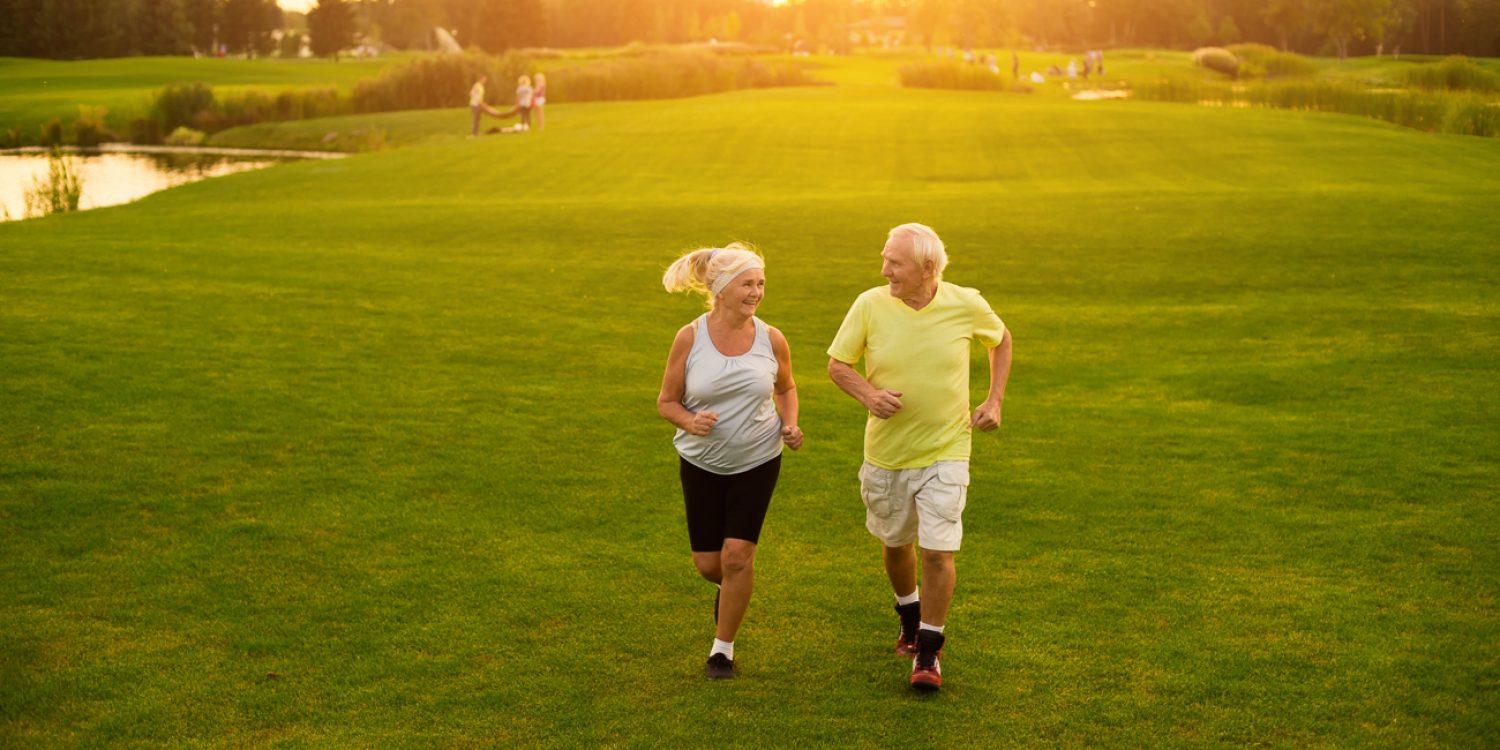Your health and overall well-being is largely driven by your lifestyle. What do we mean when we say this? Well, let’s start by considering 4 major components of your lifestyles: sleep, stress, nutrition, and movement. These four factors effect everyone. We all require sleep, we all experience stress, we all have to eat, and we all have to move in order to live productive and meaningful lives. Now, let’s take this a step further and consider how each of these factors impacts us on a daily basis. We can all probably agree that a lack of sleep impacts you negatively and likewise with excess amounts of stress. A diet of fast food and ultra-processed foods probably leaves you feeling sluggish and unmotivated and a lack of movement, undoubtedly, affects us from our muscles and joints to the way our bodies metabolize the food we eat.
All of these factors are components of our lifestyle and how well we manage each one has a major impact on our health and how we age. If you find yourself struggling with getting good quality sleep or juggling the demands of life and keeping a healthy mindset in the process, the good news is there is an effective way to address these concerns and it’s exercise! Yes, exercise has proven itself, again and again, to have a positive impact on how we sleep, how we handle stress, how we metabolize and utilize nutrients and how we move our bodies. Let’s take a deeper look at each of these factors and explore some ways exercise can help.
Sleep
Consider your physical and mental load on any given day. Now consider how much time you allocate for rest and recovery. Ideally, your recovery needs to be at least equal to your load in order to feel well and for our bodies to rejuvenate. We all have perceived obligations that we want to fulfill but if the demands we place on ourselves outweigh our recovery, this is a recipe for a health disaster. A good night’s sleep is mandatory for optimal health and performance and is a huge part in the recovery and repair process. Our bodies regenerate during sleep which is essential for us to properly deal with stressors of the next day.
There are ways to help promote better sleep like taking in natural sunlight upon waking to help signal to the body that it’s time to wake up and regulate our sleep-wake cycle. Another way to promote a good night’s rest is with regular exercise. If you want to really stack the odds in your favor, combine morning sun exposure with your daily exercise. If you can get outside and get your body moving before 10:00am this will help to not only regulate your sleep-wake cycle but also increase the production of serotonin, which is a precursor for melatonin which is what helps you feel sleepy at night.
Stress
We often refer to stress as life throwing us a curveball which is fairly accurate considering life confronts us with a continuous stream of events and experiences and depending on who is experiencing them, they can be perceived as “stressful”. However, our stress levels are largely a reflection of how we handle life’s curveballs! We often attribute stress to outside sources or external factors. We think our stress is caused by things that happen to us however our stress levels are largely a reflection of how we internalize and react to things. If we are in a constant state of heightened stress, our bodies are in a constant state of arousal or stuck in the fight or flight response. This impairs our ability to think and react in a calm, thoughtful manner.
We can help regulate our nervous system with a regular exercise routine. Exercise is so important for our mental health and stress levels because it reduces levels of the body’s stress hormones, such as adrenaline and cortisol, while also stimulating the production of endorphins, which are the body’s mood elevators. Exercise can also help take your mind off your worries. The repetitive motions involved in exercise distract you from your thoughts and promote an awareness of your body, rather than your mind. This distraction from the thoughts in your head can provide you with the relief you need to refocus your thoughts in a more positive manner and reduce your stressful self-talk. This is an essential part of reducing stress. You must be able to interrupt the constant thoughts and worries in order to refocus your mind and calm your stress response.
Also, it’s important to remember that exercise itself is a form of stress so, when you are already experiencing heightened stress, you want to avoid doing high intensity forms of exercise. Stretching and mobility exercises are perfect in times like these. Stress can cause muscles to become tense, which in turn causes muscles to tighten, leading to discomfort and chronic pain. Stretching reduces muscle tension, which helps prevent muscle tightening and pain making it an excellent way to release extra tension and energy that you are experiencing during times of heightened stress.
Nutrition
What we eat on any given day has a major impact on our health in the long run and an immediate impact on how we feel physically and mentally. A well-balanced diet is essential for balancing blood sugar, keeping inflammation at bay, and having the energy you need to be productive and live optimally. We often don’t associate the way we feel physically and mentally with what we eat but more and more evidence is revealing that food effects our physiology and in turn impacts how we think and feel.
You can use movement and exercise to aid your body in utilizing the food you eat as fuel and nourishment. For example, just a 10-minute walk after meals can help regulate your blood sugar. Research has shown that exercise after meals can help prevent a spike in your blood sugar and help maintain a more stable blood sugar throughout the day. This is important for many reasons but one of them is that it helps maintain energy levels and prevent that crash you might experience after consuming a carbohydrate heavy meal and then sitting at your desk for the next 4 hours. It is also beneficial for stabilizing your mood and preventing mood swings throughout the day.
Movement
Unfortunately, modern life hasn’t done us many favors in regard to encouraging daily movement which has led to most individuals spending increasing amounts of time sedentary. Sitting might seem harmless but research suggests that people who sit for more than eight hours a day, with no physical activity, have an increased risk of premature death similar to individuals who are obese or smoke. In fact, a sedentary lifestyle has been identified as a health risk, independent of physical inactivity, meaning even if you are meeting the weekly recommend physical activity recommendations of 150 minutes of moderate intensity aerobic exercise and 2-3 strength workouts each week but spending copious amounts of time sedentary, you are still at an increased risk of negative health outcomes.
The human body is designed to move! Overcoming a sedentary lifestyle requires intention and effort. We must examine our lifestyle and all the things that we could be doing that decrease our time sedentary and increase the amount of time we spend moving our bodies. The common daily activities that we do like walking, climbing stairs, dancing to our favorite song, playing with our grandchildren, cleaning the house and grocery shopping accumulate and have a significant, positive impact of an individual’s daily energy expenditure. Unfortunately, you can see how most people accumulate very little amounts of time of moving their bodies, in any given day, because a lot of these mundane tasks that were once common have been engineered out of our lives in exchange for convenience. We suggest that you start to reduce your time spent sedentary by breaking up periods of prolonged sitting with easy exercises you can do seated or in your immediate environment. Check out workshop 3 in the Spiro Lifestyle Series for exercises that are great to do at your desk, in an office, at your couch etc. We also encourage you to never underestimate the power of a simple walk. Challenge yourself to walk for 10 minutes, after each meal. This does wonders for getting in more daily movement and as mentioned above, helps to stabilize your blood sugar after meals. Win, win!
Join Us!
Want to learn more about how you can beat the holiday blues and enjoy the holiday season to its fullest?! We have you covered! Our live workshops are available on demand so you can learn the signs and symptoms of the holiday blues, get the tools you need to overcome them and practice with guided exercises led by Stacy McCarthy, on your own time.


